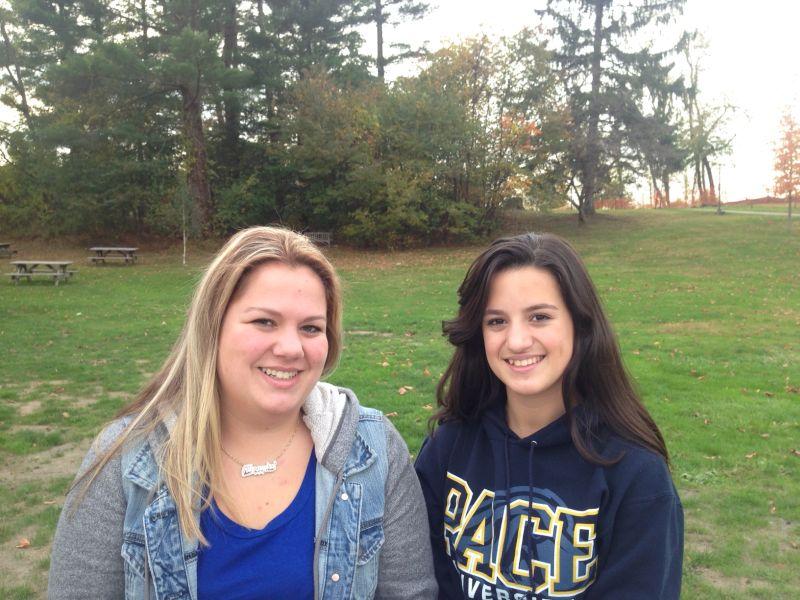Food Justice Team Seeks Dialogue Between Chartwells and Students
Alexandra Catalano (left), Alyssa Vilas Boas (right), and Anthony Jones (not pictured) make up the Food Justice Team.
The Food Justice Team of Pace’s Environmental Clinic is working to “bridge the gap” between Chartwells and students at the Pace Pleasantville campus.
The team’s overall goal is to work toward greater food sustainability on campus; the team members want to pursue bringing more organic, locally grown foods onto campus. But first, they are working to create a stronger, more open relationship between students and Chartwells by creating a Dining Services Committee.
“The student body should be able to have a voice in food practices and choices here on campus,” said Food Justice Team member and junior Anthony Jones.
The Food Justice Team, which includes sophomore Alyssa Vilas Boas, sophomore Alexandra Catalano, and Jones, wants to “open a dialogue” between students and Chartwells, the dining service that is on both the Pleasantville and New York City campuses.
According to members of the Food Justice Team, Pace’s New York City campus already has a student dining committee to help coordinate communication between Pace students and Chartwells. Chartwells is thus able to listen to requests and complaints and let New York City students know what they can and cannot do to help.
The team is currently conducting a survey to establish what students are happy with and what they have problems with regarding Chartwells food and services.
Some topics covered on the survey include what kind of food students look for on campus, what a student’s definition of “healthy” is with regards to campus food, and what improvements students have noticed, if any, in the Chartwells food service. For example, some students indicated that there are not always Kosher or vegetarian options available to them at the dining halls on campus.
The team also wants Chartwells to hear the positives of the dining experience at school.
“We want Chartwells to know what’s working,” Vilas Boas said. “Small changes can improve the situation.”
“Bridging the gap” of communication between Chartwells and students, according to the team, will “improve the way students think of Chartwells” by allowing them to better learn and understand the dining service’s business model and functions.
“Open dialogue between students and Chartwells will improve their business; more dialogue will have a ripple effect and they will then be able to better themselves as a business,” Catalano said.
For updates on the Food Justice Team’s mission to create a dining service committee, follow their blog on ePolicy.blogs.pace.edu. Their current survey is ongoing and can be accessed at http://paceadmins.qualtrics.com//SE/?SID=SV_9vKuRAitQQogLHv
Your donation supports independent, student-run journalism at Pace University. Support the Pace Chronicle to help cover publishing costs.


